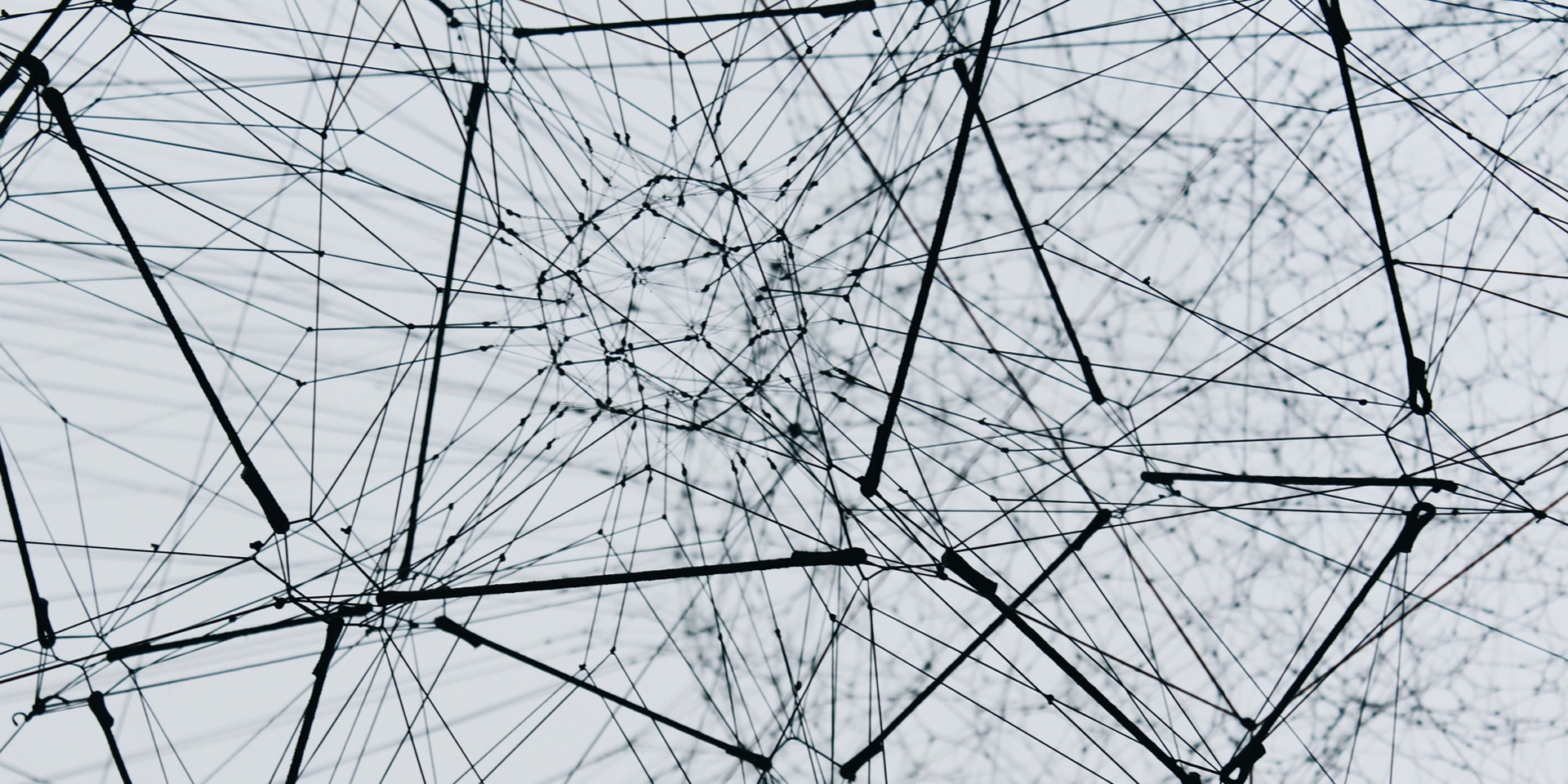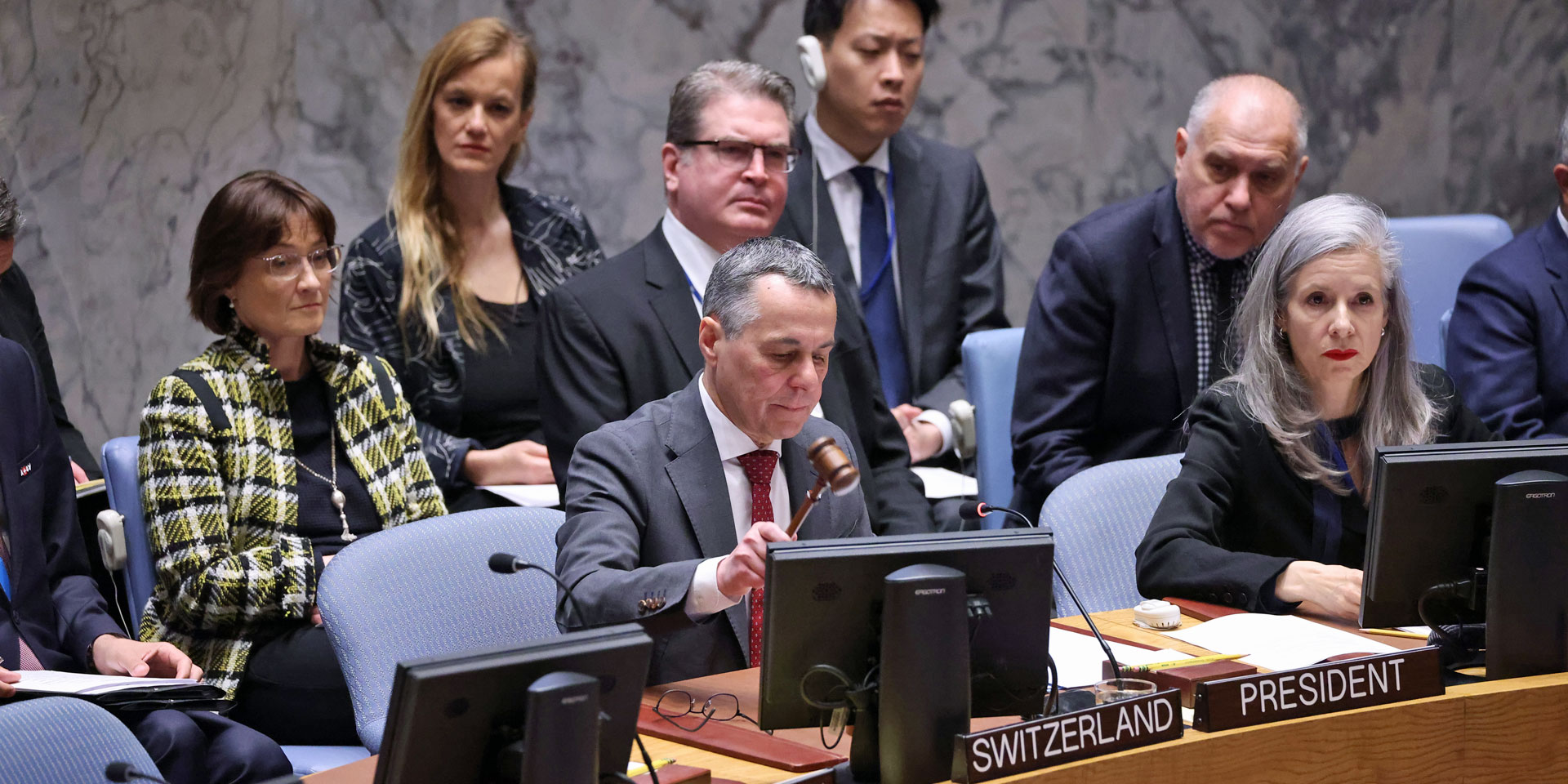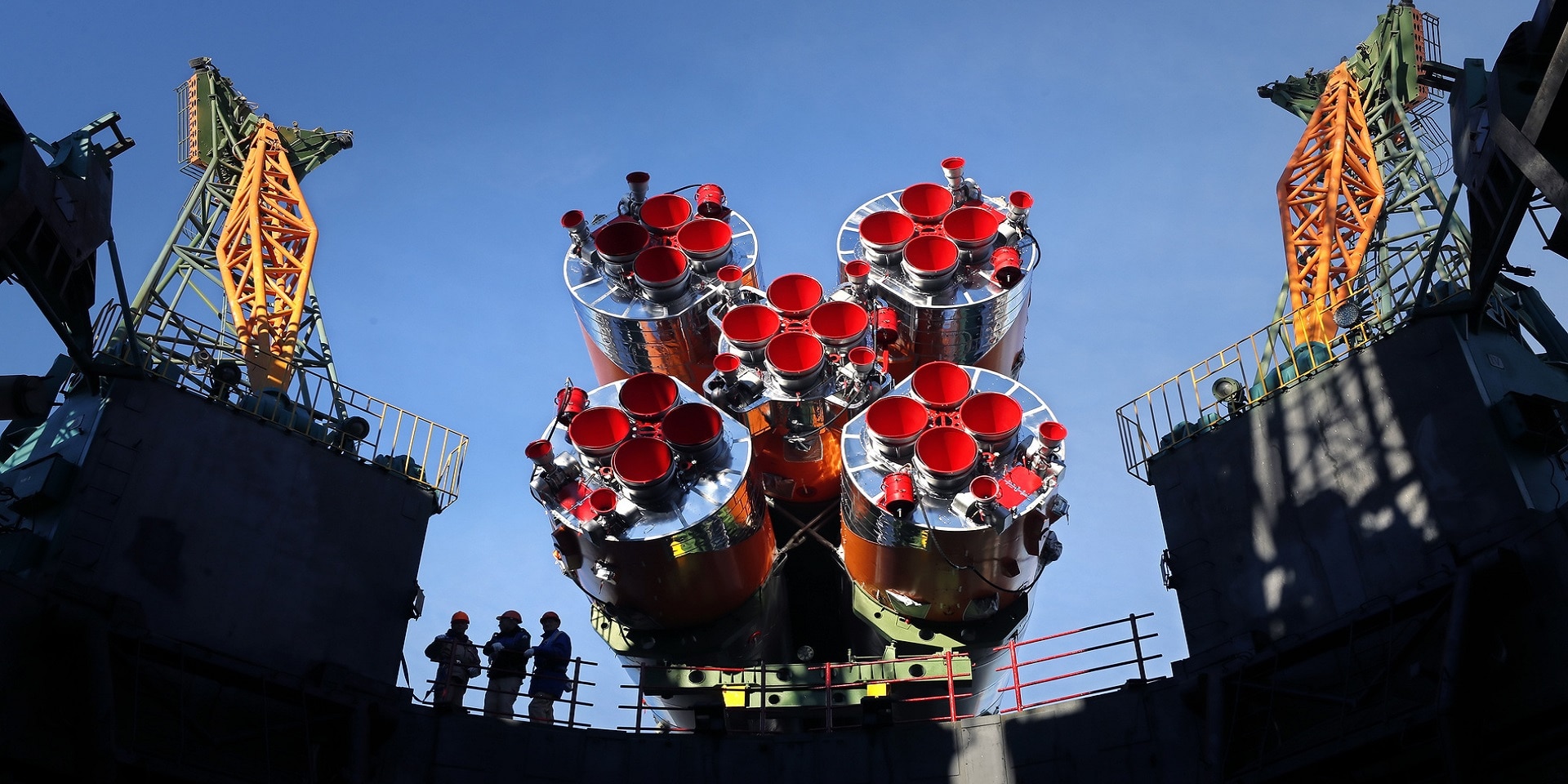UN Security Council: Unlocking the potential of science for peace and security
Switzerland has organised a meeting of the UN Security Council on 17 May 2024 to strengthen the interaction between the scientific community and the Council. The inclusion of science in the Council's decision-making process has the potential to promote mutual trust and contribute to conflict prevention, sustainable peace and an effective Security Council - both priorities of the Federal Council for Switzerland's 2023-2024 Council membership.

The scientific collection, interlinking and analysis of data can help the UN Security Council to better fulfil its mandate for peace and security. © Alina Grubnyak / Unsplash
The number of conflicts worldwide has reached its highest level since the Second World War. ‘It is time to optimise our instruments to restore trust and ensure lasting peace,’ declared Federal Councillor Ignazio Cassis on 3 May 2023 in an open debate of the UN Security Council under the Swiss presidency.
One pillar for restoring mutual trust is the inclusion of science in peacebuilding and international diplomacy. Shared evidence-based knowledge can promote trust between states and support decision-making in international bodies. This is why Switzerland organised an informal meeting at the UN Security Council on 17 May 2024, which focused on the use of science for the work of the Security Council. Given the close links between global challenges such as climate change, pandemics, economic crises and conflicts, science has the potential to support the UN Security Council's decision-making and contribute to the fulfilment of its mandate for peace and security in the world.
The Council was briefed today by Henrietta Fore, Board Member of the Geneva Science and Diplomacy Anticipator (GESDA) Foundation, and Dr Sascha Langenbach, Data Scientist at the Center for Security Studies at ETH Zurich. In the following interview, they explain how science can specifically support the Security Council in better fulfilling its mandate.

How can we use scientific anticipation solutions to solve global and interlinked challenges?
Henrietta Fore (GESDA): Quantum technology holds great promise for solving global problems. Anticipating the emergence of this technology is one of our priorities. GESDA, together with CERN and UBS as core partners, has just launched the Open Quantum Institute (OQI), which will use this technology to help meet the UN's 17 Sustainable Development Goals. Thanks to solutions derived from quantum computing algorithms, researchers, large companies, start-ups and International Organizations plan applications in the fields of health, water sanitation, decarbonization as well as applications for producing more food locally, using less land and taking environmental parameters into account.
What kind of rethinking does the Security Council need in order to better implement its mandate based on evidence-based knowledge?
Sascha Langenbach (ETH): The term ‘rethink’ is an important keyword for me. I am thinking primarily of the need for long-term organisational change within the United Nations. Today's Security Council briefing focussed on the question of how UN bodies can work better with scientists from external research institutions. This kind of co-operation is important. However, we should not forget that the UN also relies heavily on scientific and technical expertise and resources within its own organisation. Both need to be further expanded in the future.
UN bodies need to strengthen their own internal resources and competences, especially when it comes to data processing and analysis. The need for this is exemplified by the peace missions mandated by the UN Security Council. UN peacekeepers working in crisis and conflict areas have to collate and analyse a large amount of information every day. This is the only way to create an accurate picture of the situation and protect the civilian population from violent attacks. The number of relevant sources of information is constantly growing. UN peacekeepers have to analyse internal reports and patrol data as well as posts on social media platforms and large collections of satellite images, which are available with increasing spatial and temporal resolution. Modern information processing methods can help UN peacekeepers to view and analyse this data. However, this also requires an appropriate technical infrastructure as well as personnel with a good grounding in the fields of data science and data engineering. In general, a change in the working culture within the UN is also desirable in order to integrate evidence-based knowledge into decision-making processes even more than before.
Henrietta Fore (GESDA): As global challenges become increasingly interconnected and technologies rapidly advance, science has the potential to improve the UN Security Council’s decision-making and help it to better fulfill its mandate. The Security Council is aware of this, and already interacts with scientific experts in many ways.
Anticipating these trends creates the space for preventive action and guidance. The GESDA Science Breakthrough Radar® aims precisely at tackling this challenge: drawing on the views of roughly 2000 leading scientists hailing from 73 countries across all continents, it offers a curated and objective overview of major science trends in the coming 5-10-25 years. The Radar helps us use the future to build the present!
What existing ETH and GESDA projects can the Security Council draw on to further develop its potential for using science to maintain international peace and security?
Henrietta Fore (GESDA): The OQI that I mentioned earlier is one such concrete project. Another is a collaboration between GESDA, the Geneva Centre for Security Policy (GCSP) and Columbia University's School of International and Public Affairs (SIPA). We have brought together experts in the field of peace and war to develop a methodology for anticipating how advances in science and technology will influence security and the distribution of power over the next 10 to 25 years. This methodology will be used to inform high-level political decision-makers on the nature of future conflicts and the means for resolving them.

Sascha Langenbach (ETH): The expertise of researchers at ETH Zurich is relevant to the UN in many ways. This is why both organisations signed a Memorandum of Understanding in October 2023, which aims to promote science- and technology-based cooperation between the UN and ETH.
Our institute, the Center for Security Studies (CSS), is currently working with two different UN partners. On the one hand, we advise the UN Crisis Centre on the collection and analysis of event data in conflict zones. On the ETH side, we co-operate closely with colleagues from the Department of Informatics, in particular with its ‘IVIA Lab’. Together, our interdisciplinary team makes recommendations to the UN Crisis Centre on how computer-based methods can be used to simplify data collection by UN peacekeepers in conflict zones, to identify contradictory information more quickly, and to enable consistent data collection across different peacekeeping missions. Our team is also helping the UN Crisis Centre to explore the possibilities offered by new machine learning techniques in predicting conflict dynamics in conflict zones.
Our centre also runs a training programme in the field of conflict mediation, which is supported by the UN Department of Political Affairs. Several UN employees have already completed this training programme in recent years.
Of course, there are many other areas of work in which the expertise of ETH Zurich scientists can be of value to the UN. These include climate modelling, AI-supported analysis of large volumes of satellite data and research into the automatic detection of disinformation in social media. The partnership between the UN and ETH established in autumn 2023 should make this type of expertise more easily accessible in the future.
Science as a link for strengthening mutual trust for peace
Strong multilateralism can also offer added value in these turbulent geopolitical times. Strengthening mutual trust between states to promote sustainable peace – a priority of the Federal Council for Switzerland's membership of the UN Security Council 2023-2024 – is central at a time when the multilateral system is under strain. A mutually respected normative framework strengthens predictability, which, in contrast to arbitrariness, ensures mutual trust. Science plays an important role here: ‘Science and new technologies offer us the opportunity to better anticipate and understand the risks of today and the opportunities of tomorrow,’ said Federal Councillor Cassis at the Security Council in New York on 3 May 2023. This knowledge must also be used to prevent conflicts and secure peace.
Science diplomacy is an important instrument of Swiss foreign policy
According to the Federal Council's Foreign Policy Strategy 2024-2027, science can make an important contribution to diplomatic efforts in the context of good offices, peacebuilding and global governance and thus contribute to evidence-based foreign policy action. Switzerland's leading position in international rankings in the areas of education, research and innovation creates good conditions for Switzerland's high-profile science diplomacy. This also helps to strengthen the international profile and competitiveness of Swiss players in the fields of education, research and innovation and to support cooperation projects around the world.



